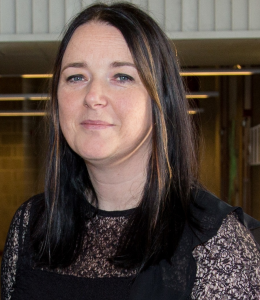Charles Dickens wrote ‘It was the best of times, it was the worst of times’ as his opening lines to A Tale of Two Cities, an opening that is quite fitting for today.
News and business analysis for Professionals in International Education
Have some pie!
Leading education in unprecedented times
 Leading education in this crisis has not been easy. Educational leaders, navigate these choppy waters with their staff. Photo: Unsplash
Leading education in this crisis has not been easy. Educational leaders, navigate these choppy waters with their staff. Photo: Unsplash The world is in mourning for those who have not survived this pandemic and concerned for those who bravely battle its pervasiveness. The Covid-19 pandemic is changing the very fabric of our lives, how we live and work.
“Leading educational organisations in a global pandemic brings challenges beyond what could have been previously surmised”
Educational leaders are not exempt from these pressures and are leading in extraordinary times. There is certainly no tried and tested rule book to which leaders can refer in this eventuality.
We have been thrust into an age of risk-focused, flexible and responsive leadership, where those at the helm must quite rightly focus even more carefully on employees’ somatic and psychological wellbeing as well as delivering on organisational goals.
Leading educational organisations in a global pandemic brings challenges beyond what could have been previously surmised, but then, ‘a calm sea never a good sailor made.’ Education systems have responded with remarkable agility, moving to online teaching and learning and synchronous and asynchronous delivery of curricula.
Educators in the main, have overcome residual recalcitrance towards the virtual classroom, embracing it to avoid losing their connection with students. As teachers, we instinctively prefer to engage in person with our students, so while online teaching may not be our preferred mode of engagement, a deep commitment to students takes precedence and has moved teachers beyond their ‘pedagogical comfort zones’ into new and innovative online methodologies.
The sense of efficacy that educational organisations will foster from this will pay dividends, in the face of current and future adversities – they know they can manage it because they already have!
Leading education in this crisis has not been easy. Educational leaders, navigate these choppy waters with their staff, all the while motivating, encouraging and reassuring them, problem-solving, troubleshooting, organising resources, and fostering the empowerment and self-concept of their team, oftentimes when these same team members might not have any sense of their own capacity.
While leading remotely (a phrase that might have seemed an oxymoron before) they foster collegiality, resilience, and encourage others to step up, to lead in their own fields (distributive leadership).
They are decisive; they protect their team and ensure their stakeholders remain as previously engaged. They provide care for those in need, as often they know particulars in the lives of those most in need both in their teams in a way that others do not.
It might appear a gargantuan task (and sometimes thankless, leaders rarely keep everyone happy), but it is profoundly rewarding. Educational leaders have proved themselves adroit, innovative and have reassured their respective nations that their education systems are in good hands.
“Educational leaders have reassured their respective nations that their education systems are in good hands”
Historical theories of leadership previously espoused that leadership was bound up in the possession of personal traits or characteristics. You were a ‘born leader’ or you weren’t.
Thankfully more contemporary relational and distributive conceptualisations are popular for modern leadership. Educational organisation are more fluid, dynamic and change prone requiting astute, responsive and vibrant leaders. Educational leadership functions best when fostered, nourished and supported.
Underpinned by understandings of how crucial excellence in leadership education is to organisational success, the international online Masters in Education Leadership at the University of Limerick is a fully online programme for educational leaders (aspiring and current) that successfully fosters leadership dispositions skills and attributed that so that our graduates become thriving leaders whose schools and teams flourish under their care. For more information, see here.
 Prof. Patricia Mannix McNamara is Head of Education at the University of Limerick in Ireland. Patricia leads the national programme for aspiring school leaders, a government initiative for the education of school leaders including principals and middle leaders funded by the Department of Education and Skills. Her research expertise is in leadership, mentoring and coaching, wellbeing, and organisational culture in educational organisations.
Prof. Patricia Mannix McNamara is Head of Education at the University of Limerick in Ireland. Patricia leads the national programme for aspiring school leaders, a government initiative for the education of school leaders including principals and middle leaders funded by the Department of Education and Skills. Her research expertise is in leadership, mentoring and coaching, wellbeing, and organisational culture in educational organisations.
Still looking? Find by category:


